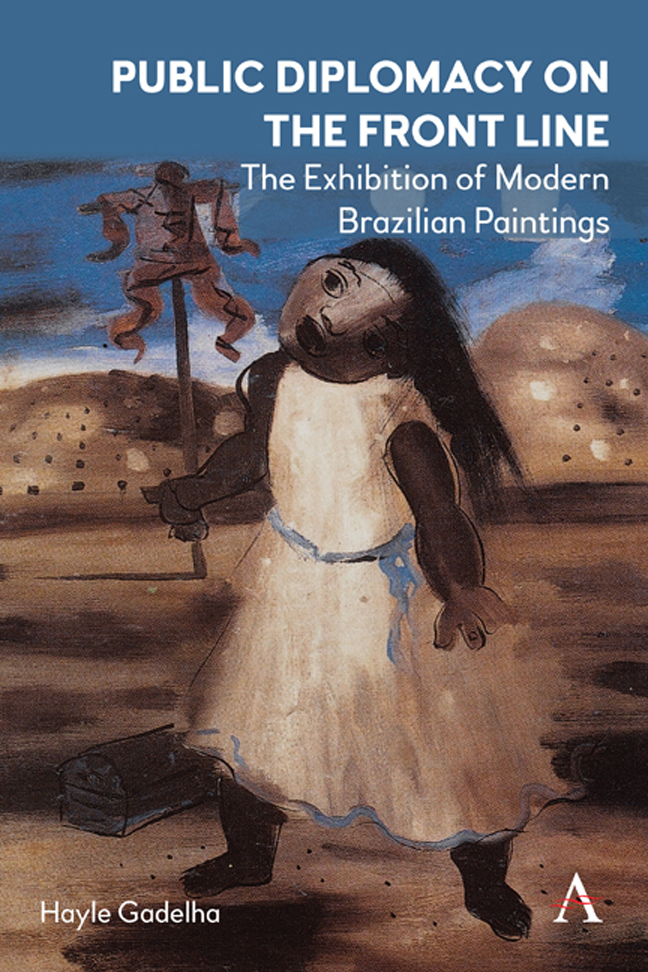Summary
The soft power of archaeological or historical objects may be re-politicised and activated by influentials. Long-forgotten narratives may be ‘discovered’ and politicised by cultural entrepreneurs and political brokers respectively
Chitty, Ji, Rawnsley & HaydenIt has been an interesting challenge and a unique opportunity to research and to write about a virtually unheard-of yet relevant historical phenomenon. During the process of uncovering, reconstructing and interpreting the Exhibition of Modern Brazilian Paintings, a number of intriguing questions have arisen. Perhaps the most important was to explore into the motivations behind such an atypical and meaningful art display in the midst of a World War. It is noteworthy that the Olympic Games planned for summer 1944 in London were cancelled due to WW2, while a show of unknown paintings from the other side of the Atlantic Ocean reached the British capital and was hosted by its most traditional art institution.
This improbable event was started by non-governmental players – Brazilian Modernist painters – as widely publicised at the time. An uncritical reading of 1940s newspapers might indicate that this was indeed a mainly private endeavour, as labelled by artists and civil servants. The in-depth cross-examination of pieces of news, letters and official documents discarded this hypothesis and proved that the initiative was only made possible by the championing of Brazilian diplomacy and its commander, Oswaldo Aranha. At a second stage, once offloaded on British soil, its organisation relied on the decisive support of UK government interests. A thorough analysis of primary sources clearly showed that MRE acted as the main driving force that planned and undertook this ambitious endeavour, which, even though inspired by Modernist painters, came to fruition as an official and diplomacydriven enterprise. This book argues that the initiative was part of a broader diplomatic programme developed by Minister Oswaldo Aranha. Aiming at advancing bilateral ties with the United Kingdom, Aranha sought to foster closer relations between Brazilian and British societies. Furthermore, the Exhibition worked as a cultural component of the part in the War played by Brazil, the only Latin American nation to deploy an important contingent – of 25,000 troops – to fight on the European front. Both the military and artistic contributions must be understood as diplomatic attempts to amass international prestige and reposition Brazil in the post-War emerging order.
- Type
- Chapter
- Information
- Public Diplomacy on the Front LineThe Exhibition of Modern Brazilian Paintings, pp. 155 - 162Publisher: Anthem PressPrint publication year: 2023

